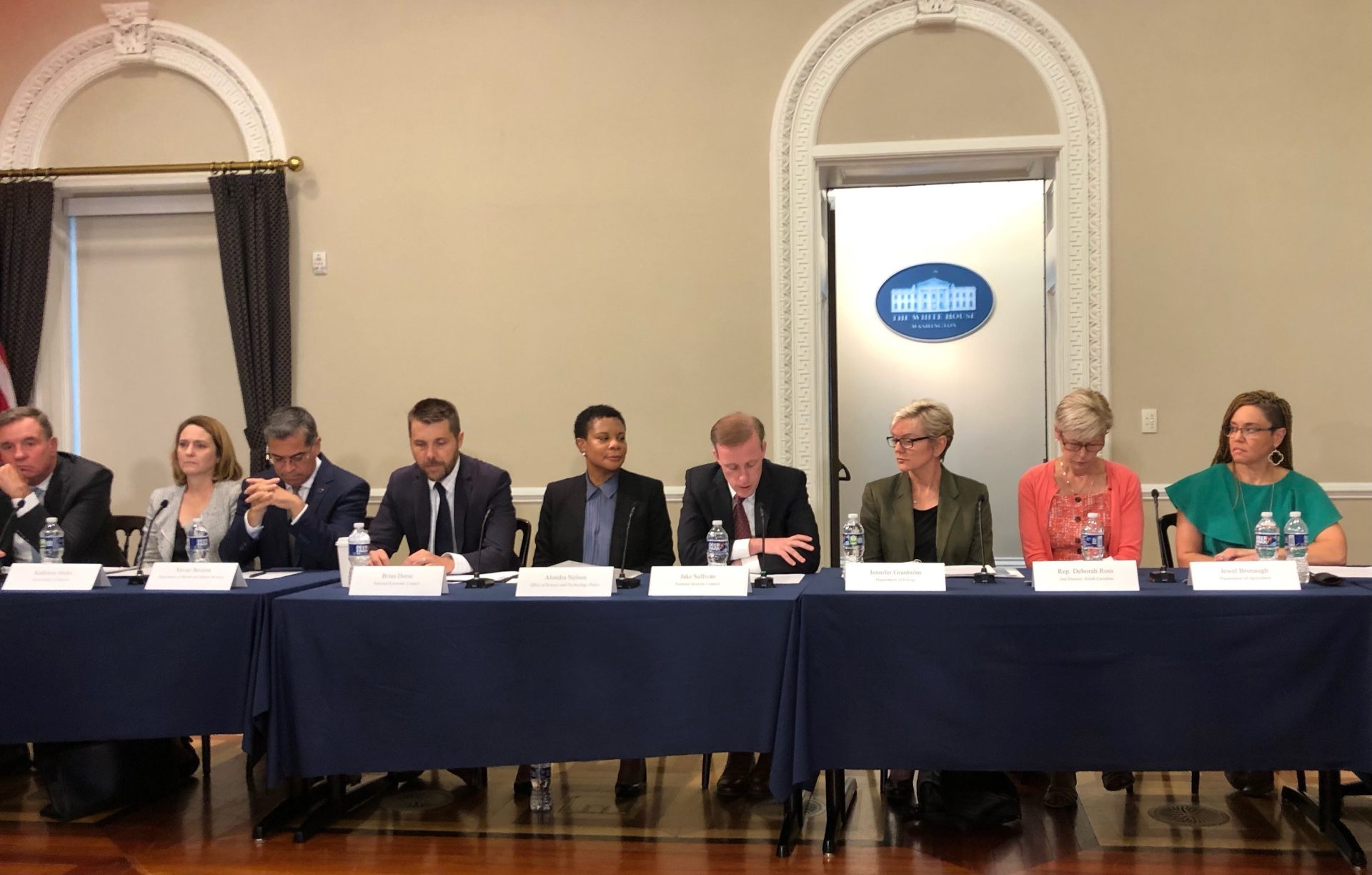The White House Summit on Biotechnology and Biomanufacturing
Author: Sri Kosaraju
Last week I was honored to represent Inscripta at the White House Summit on Biotechnology and Biomanufacturing. It was extremely encouraging to see the level of support across government agencies and over 2 billion dollars in new funding that will spur domestic biomanufacturing, drive the formation of a sustainable workforce, and create new supply chains for a healthier planet.
It was inspiring to see several of our industrial partners with a seat at the table last week. I firmly believe that to fully realize the potential of biomanufacturing, industry and government must work in collaboration. Inscripta is committed to developing critical technologies like automated genome engineering to bolster domestic biomanufacturing and generate safe and secure biotech innovations.
Genome Engineering will be a cornerstone of the bioeconomy revolution. CRISPR technology was developed in part by American scientists, and it’s imperative that we continue building upon that innovation to maintain American leadership in the field. We have already seen early wins with gene editing in cell and gene therapy, and now we have the opportunity to apply it to the broader Bioeconomy.
President Biden’s Executive Order provides a critical framework for establishing the US as a global leader in biomanufacturing. This is an ambitious goal that will require immediate and sustained efforts from all.
There are a number of actions that can help support the policy, but several in particular that I feel can catalyze the objectives outlined in the Executive Order:
- Direct Investment:
- Government-issued grants sponsoring large-scale, academic projects in key research areas
- Support the development of novel R&D approaches and disruptive technologies to discover and produce new bio-products more quickly
- Grants sponsoring biofoundries and genome centers that can enable greater access to cutting-edge technology across the country
- Support additional private biomanufacturing capacity by developing new facilities and optimizing bioproduction platforms at current manufacturing sites
- Tax Incentives:
- Private sector tax credits toward incentivizing investments in bioeconomy supporting R&D, (both people and infrastructure), and the purchase of U.S. bio-based supply chains and products
- Provide incentives to the larger community, both academic and commercial, to collaborate instead of competing and increase access to the tools and tech needed for innovation in the field
- Promote Principles:
- Encourage collaboration and the engagement of all stakeholders
- Prioritize Biosecurity
- Set standards
While last week’s events were incredibly energizing, I’m also realistic about the amount of work we all have ahead of us. This Executive Order was many years of hard work in the making and now we need to follow through.
If we commit to innovation, collaboration, and the right investments in the bioeconomy, we can create a modernized industry with good jobs and strong supply chains, a more sustainable environment with reduced carbon emissions, and improved health with better, cheaper, and more available medicines.
Thank you to all those who worked so hard to get us here – last week was a celebration, but also a reminder about the importance of the Bioeconomy, what is at stake, and what we can do to make a positive impact.

